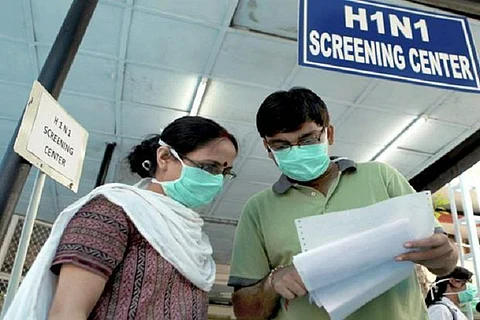

After swine flu was detected at a piggery in Kelrai in the district, Karnataka’s Dakshina Kannada district administration has initiated measures to arrest the spread of the infection. Stating that a few pigs were found infected with swine flu, Animal Husbandry Deputy Director Arun Vandse said, “A few pigs at the farm run by Prakash at Kelrai of Neermarga village on the outskirts of the city were found to have a fever and other symptoms of the infection in the second week of October. The samples of infected pigs were sent to a laboratory in Bengaluru, which confirmed swine flu on October 31.”
Arun said 120 of the 200 pigs at the farm had died of the highly contagious disease by the time the results came. The remaining pigs were culled after obtaining permission from the Deputy Commissioner. The administration has declared a one-km radius around the disease-affected zone, while a 10-km area has been declared as a vigilance zone.
Meanwhile, Dakshina Kannada Deputy Commissioner MR Ravikumar said there was no cause for panic among people as the infection does not spread to human beings or other animals. “There is also no harm in consuming pork if it is properly cooked,” he said.
The swine flu outbreak, also known as H1N1, was classified as a pandemic by the World Health Organisation (WHO) in June 2009, signifying that it had spread to numerous nations and areas. At that time, the flu had been confirmed in over 74 of these places. A zoonotic disease (one that was first only observed in animals but has since spread to humans) that originated in pigs was found to be the cause of the outbreak. While the WHO has recognised that H1N1 is now post-pandemic, it states that this merely means the disease has now been incorporated into the human population. Hence, there will be seasonal spikes in swine flu cases in various parts of the world, similar to the seasonal flu. Therefore, being vaccinated is always a smart idea.
With PTI inputs
Watch Let Me Explain: Beauty Parlour Stroke Syndrome, its symptoms and how it happens